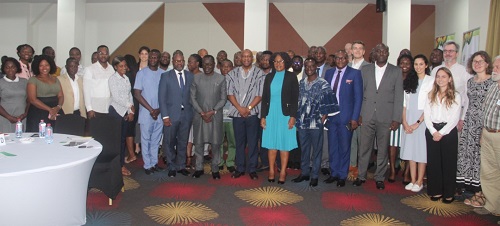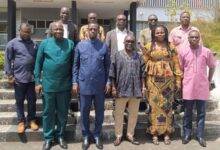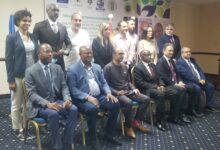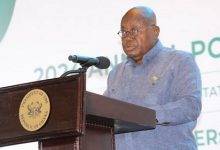
The Ministry of Environment, Science, Technology and Innovation (MESTI) is to execute a $7million funded project to strengthen the country’s capacity to transition to a circular economy framework that addressed the management of plastics.
Circular economy is a model of production and consumption, which involves sharing, leasing, reusing, repairing, refurbishing and recycling existing materials and products as long as possible.
The five-year “Establishing a Circular Economy Framework for the Plastics Sector in Ghana (CEF-PS)” project would facilitate sustainable plastics management through operationalising the National Plastic Action Partnership (NPAP) and the National Plastic Management Policy (NPMP; end marine plastic pollution and reduce the unintentional emissions of Persistent Organic Pollutants (u-POPs).
Minister of MESTI, Dr Kwaku Afriyie, said applying the principles and practices of circularity throughout the full life cycle of the plastics value chain represented the safest way to manage plastics, from its design and production, through its consumption and disposal and to its processing into secondary material for circular production.
He said this in the keynote address read on his behalf by the Acting Director of MESTI, Constant Gladzah at the inception workshop of the project in Accra last Wednesday.
The workshop was organised by MESTI in partnership with the United Nations Industrial Development Organisation (UNIDO), the implementing agency of the project and the Global Environment Facility (GEF), the funding agency of the project.
Dr Afriyie said the implementation of this project would bring together a wide range of government actors, academia, and private sector actors from across the country, to work together in applying technology to address plastic pollution, waste management and efficient resource utilisation. He said the project would provide support to Small and Medium Size Enterprises (SMEs) that were operating within the plastics value-chain to build their capacity and scale up their operations, in order to strategically position them to attract investment and technical know-how that would make their businesses profitable.
He used the opportunity to express gratitude to the GEF and UNIDO for providing MESTI with the grant for the implementation of the project. Mr Oliver Boachie, Special Advisor to the Minister in a presentation of the project said the
pillars of the project included circularity policies, standards and regulations; gender equity and inclusivity; integration of informal sector and education, awareness creation and community engagement.
He emphasised that the project would establish a Resource Recovery Secretariat (RRS); reduce or avoid emissions of POPs; support 12 projects along the plastic value chain and create 746 direct jobs and 9,864 indirect jobs.
Mr Boachie said other projects to complement it included the Ghana Circular Economy project, Circular Economy Roadmap and Work plan project and the World Bank PROBULE project.
John Hall-Acquah, Co-Founder of Eco-Solve Innovation Africa, one of the 12 projects along the plastic value chain benefitting from the project stated that the initiative would help strengthen its activities and reach.
He said the company was into the manufacturing of plastics from cassava and could biodegrade on its own within four to six months and dissolve water which is above 80 degrees Celsius.
BY ABIGAILARTHUR







